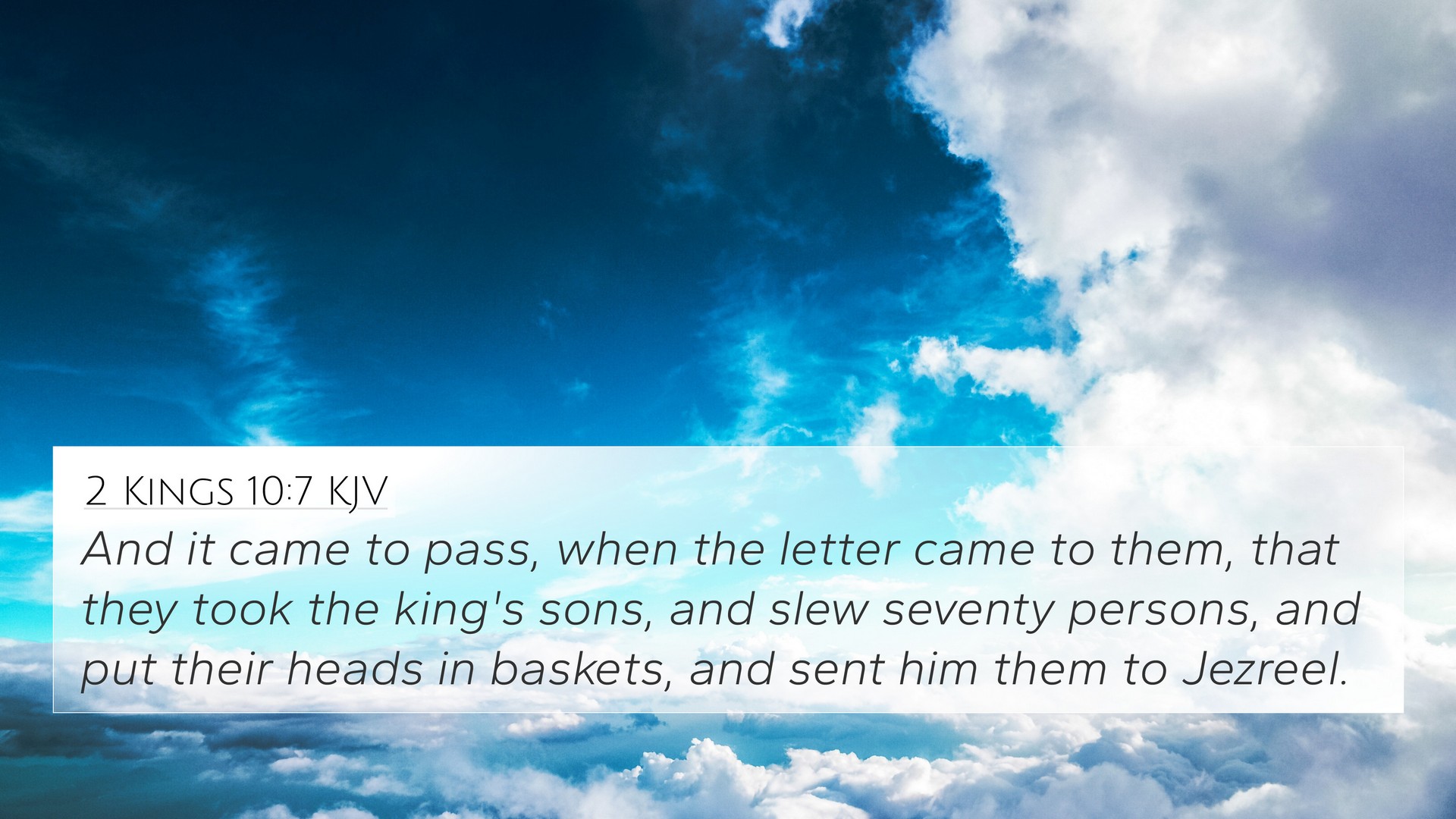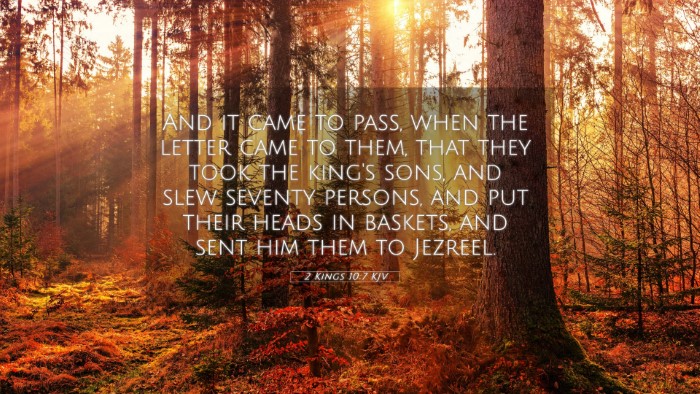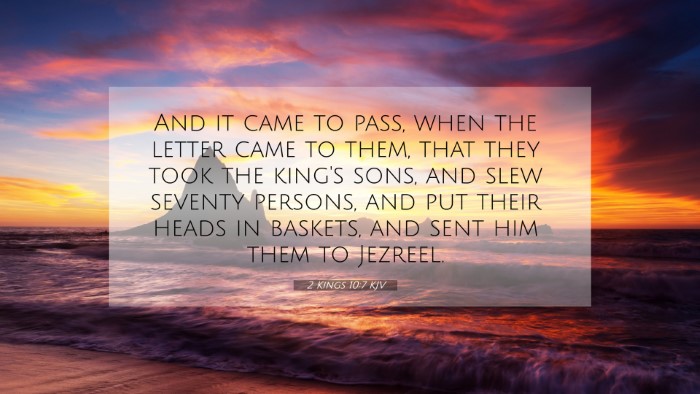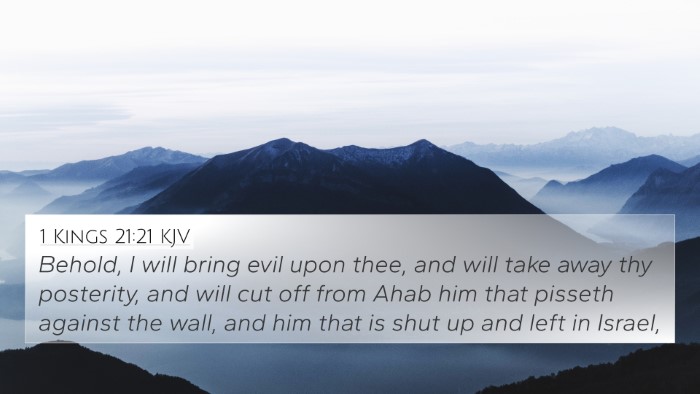Understanding 2 Kings 10:7
Verse: 2 Kings 10:7 ("And when the letters came to them, they took the king's sons, and slew seventy persons, and put their heads in baskets, and sent him them to Jezreel.")
This verse describes a pivotal and gruesome moment in the narrative of the decline of Ahab's dynasty in Israel. The actions taken reflect the fulfillment of prophesy and the violent political upheaval characteristic of this period in Israel's history.
Contextual Analysis
In the broader context of 2 Kings, this passage illustrates the relentless quest for power and the brutal measures employed in Israel's political affairs. The killing of Ahab's sons signifies an effort to eradicate any remaining claim to the throne from Ahab's lineage, as recently put in motion by Jehu's ascension to power.
Commentary Insights
-
Matthew Henry: emphasizes that this violent act was not merely a power grab but a fulfillment of God's judgment upon the house of Ahab. Henry notes that God's promise of judgment was carried out through Jehu, showcasing that divine justice often operates through human actions, even in their darkest forms.
-
Albert Barnes: highlights the strategic dimensions of the event. By executing Ahab's sons, Jehu aimed to eliminate potential rivals, reinforcing his position as king. This act portrays the treachery and necessary ruthlessness in political power dynamics of the time.
-
Adam Clarke: points out the symbolism of sending the heads in baskets as being particularly gruesome and indicative of the derision with which Jehu regarded the former king's lineage. Clarke interprets this as a poignant reminder of the disastrous consequences of turning away from God's commandments.
Thematic Connections
This verse can be linked to several other biblical narratives that mirror its themes of judgment, political upheaval, and divine sovereignty. Key cross-references include:
- 1 Kings 21:19: where the judgment on Ahab’s house is initially declared.
- 2 Kings 9:7: God's command for Jehu to destroy the house of Ahab.
- 1 Chronicles 2:48-49: the genealogical implications and the nature of kingship.
- Jeremiah 22:30: the curse upon Jehoiakim in the line of David, drawing a connection to God's judgment upon kings.
- Matthew 2:16: where Herod kills infants to secure his throne, paralleling the actions of Jehu as politically motivated and merciless.
- Hebrews 10:30: emphasizing God's capacity as the ultimate judge, relevant in understanding the ramifications of Jehu's actions.
- Revelation 6:9-10: in connection with the cries of the martyrs, reflecting a similar theme of divine justice against earthly rulers.
Practical Applications
As one seeks to understand this verse, it’s essential to consider the nature of power and the consequences of sin. The elaborate interconnections between these scriptural events invite readers to contemplate the significance of aligning one's life with God's will to avoid similar fates—both personal and communal.
Cross-Referencing Insights
Tools for Bible Cross-Referencing: Many scholars and laypeople utilize tools like concordances and cross-reference guides to explore connections between verses. Exploring 2 Kings 10:7 within the wider narrative framework can yield a deeper comprehension of scripture.
Conclusion
In summary, 2 Kings 10:7 serves as a powerful reminder of the consequences of disobedience and the severity of divine justice. By studying verse connections and utilizing proper cross-referencing methods, individuals can gain invaluable insights into the nature of God's kingdom and the workings of human authority.
Next Steps for Further Study
Engage in a comparative Bible verse analysis by examining related narratives and themes throughout the Old and New Testaments. Utilize available Bible reference resources to uncover the layers of meaning interwoven within the scripture, enriching your understanding and application for personal growth and study.








